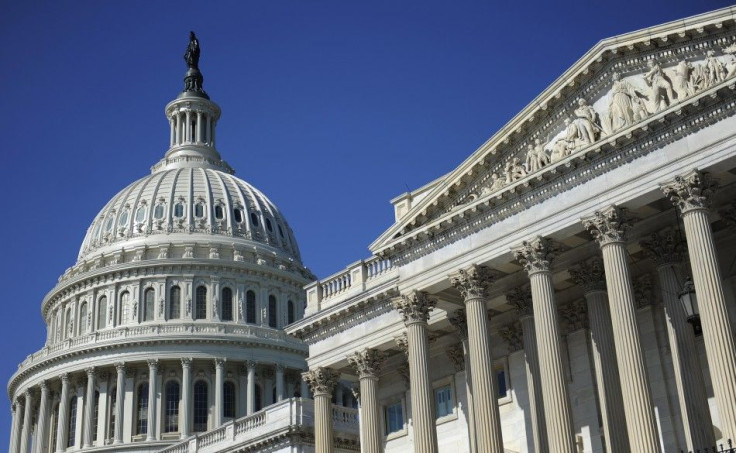Obama Tax on Wealthy - Correcting Last Decade’s Big Mistake?
ANALYSIS

President Barack Obama's new deficit reduction plan will likely be panned by the opposition Republican Party, which will probably claim it's an expansion of the role of government, but the fiscal reality is that the proposal seeks to correct a major policy mistake of the George W. Bush presidency, 2001-2008.
In fact, when combined with no effort by then-President George W. Bush to contain health care costs -- Obama's 2010 U.S. Health Care Reform Act attempts to do this -- and two wars paid for entirely with debt (the cost is $1.251 trillion and counting, not including interest) -- the three decisions represent policy errors that fundamentally altered the nation's fiscal and economic trajectory. The nation has been trying to recover ever since.
2001 Bush Income Tax Cut - Turned Surplus Into Deficit
The $1.35 trillion tax cut in 2001 -- a tax cut that many economists and policy professionals felt at the time wasn't necessary from a stimulus standpoint, given that the U.S. economy was already recovering from the mini-2001 recession -- instantaneously turned a U.S. government budget surplus into a budget deficit.
You read correctly: President Bill Clinton, D-Ark., in fiscal 2001 -- the Clinton administration's last fiscal year -- was the last president to run a budget surplus: the Clinton administration notched a $127.3 billion surplus in fiscal 2001 -- the fourth consecutive year of surpluses. As the saying goes, Those were the days -- the U.S. fiscal picture had improved so much it was paying down the national debt.
However, President George W. Bush's 2001 income tax cut instantaneously turned a $127.3 billion budget surplus into a -$157.8 billion budget deficit in fiscal 2002, and the U.S. government has had trouble balancing its budget ever since.
The Bush administration, 2001-2008, fiscal 2002 to fiscal 2009, then ran the following deficits:
Fiscal 2003: -$374 billion deficit
Fiscal 2004: -$413 billion deficit
Fiscal 2005: -$319 billion deficit
Fiscal 2006: -$248 billion deficit
Fiscal 2007: -$162 billion deficit
Fiscal 2008: -$455 billion deficit
Fiscal 2009: -$1.416 trillion deficit.
Tax Cut Tilted Toward the Rich
One economic problem with the 2001 income tax cut was that it was skewed too much toward the rich and upper-income citizens -- George W.Bush's political base -- and it almost guaranteed that, over time, broad-based demand would soften, and probably fail, in a few years.
Further, Bush refused to build on President Clinton's successful earned income tax credit (EITC) policies -- which literally lifted millions of working poor / lower income adults and families out of poverty annually -- further preventing the bulk of society from benefiting as much as upper-income groups during his years in office.
But those are social / human development consequences: the major flaw in the 2001 income tax cut was its fiscal impact. It cost the U.S. Treasury trillions of dollars -- in total, the Bush tax cut has cost the U.S. Treasury more than $2 trillion in revenue, with interest on the debt included.
Public Policy/Economic Analysis: When armed the facts, one can see that the U.S. budget deficit is hardly just a spending problem -- it's an under-taxation problem related to upper-income groups. In other words, Warren Buffett is right: upper-income groups can afford to be taxed at the former, Clinton-era rates.
What's more, in addition to the aforementioned three Bush-era policy errors, the deficit was further widened by a minimum of $150 billion in new defense spending for the wars in Iraq and Afghanistan, and for the war on terror/U.S. Department of Homeland Security operations. That would push the U.S. deficit to more than $413 billion by fiscal 2004.
(Later, during the financial crisis' acute stage, programs to stabilize systemically-critical financial institutions and related institutions, along with fiscal stimulus to counter-act the recession, would push the deficit higher.)
To be sure, entitlement reform must occur, particularly for Medicare, and less so for Social Security, but entitlement reform alone won't balance the federal budget. Federal revenue must rise substantially, and a good way to start is to reverse the 2001 Bush tax cut. It'll simultaneously return some fairness to the tax code in the form of shared sacrifice and will put the nation on a more-solid financial foundation.
© Copyright IBTimes 2024. All rights reserved.





















